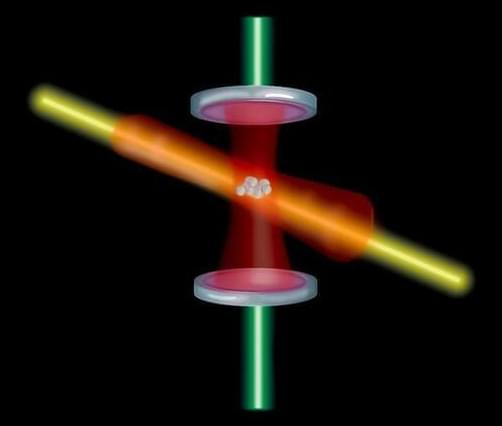If scientists could measure the oscillations of just one energized cesium atom, they’d be able to keep perfect time, but they can’t due to a weird phenomenon called the standard quantum limit.
Instead, they have to measure thousands of atoms at once and then average out the results for atomic clocks, which leads to a just slightly imprecise second.
Now, MIT researchers have found a way to create a more precise atomic clock by exploiting another weird quantum phenomenon: entanglement.
